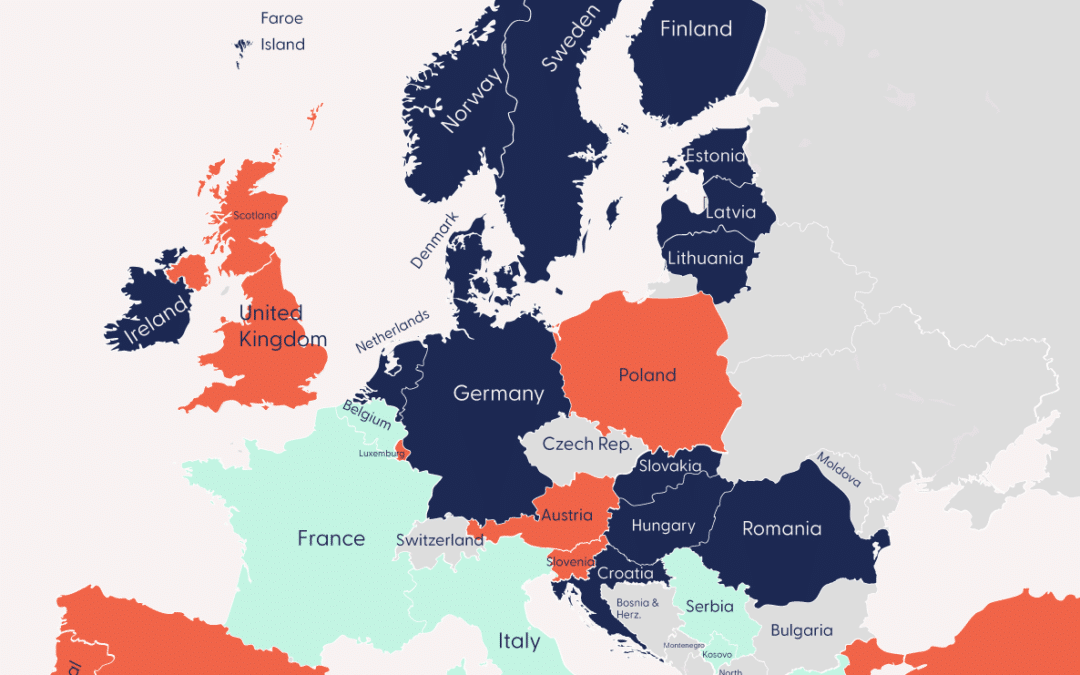Last modified: October 2025.
More and more governments in Europe are deciding to introduce deposits on cans and plastic bottles. The pace has accelerated since the approval of the European directive on single-use plastics in 2019. The Single Use Plastic Directive (SUPD) stipulates that all plastic bottles must contain at least 25% recycled content by 2025, and that member states must collect 90% of plastic bottles separately by 2029. One Member State after another is therefore deciding to introduce deposits and thus combats litter and plastic pollution. In this article we discuss the decisions of governments and parliaments in European Member States.
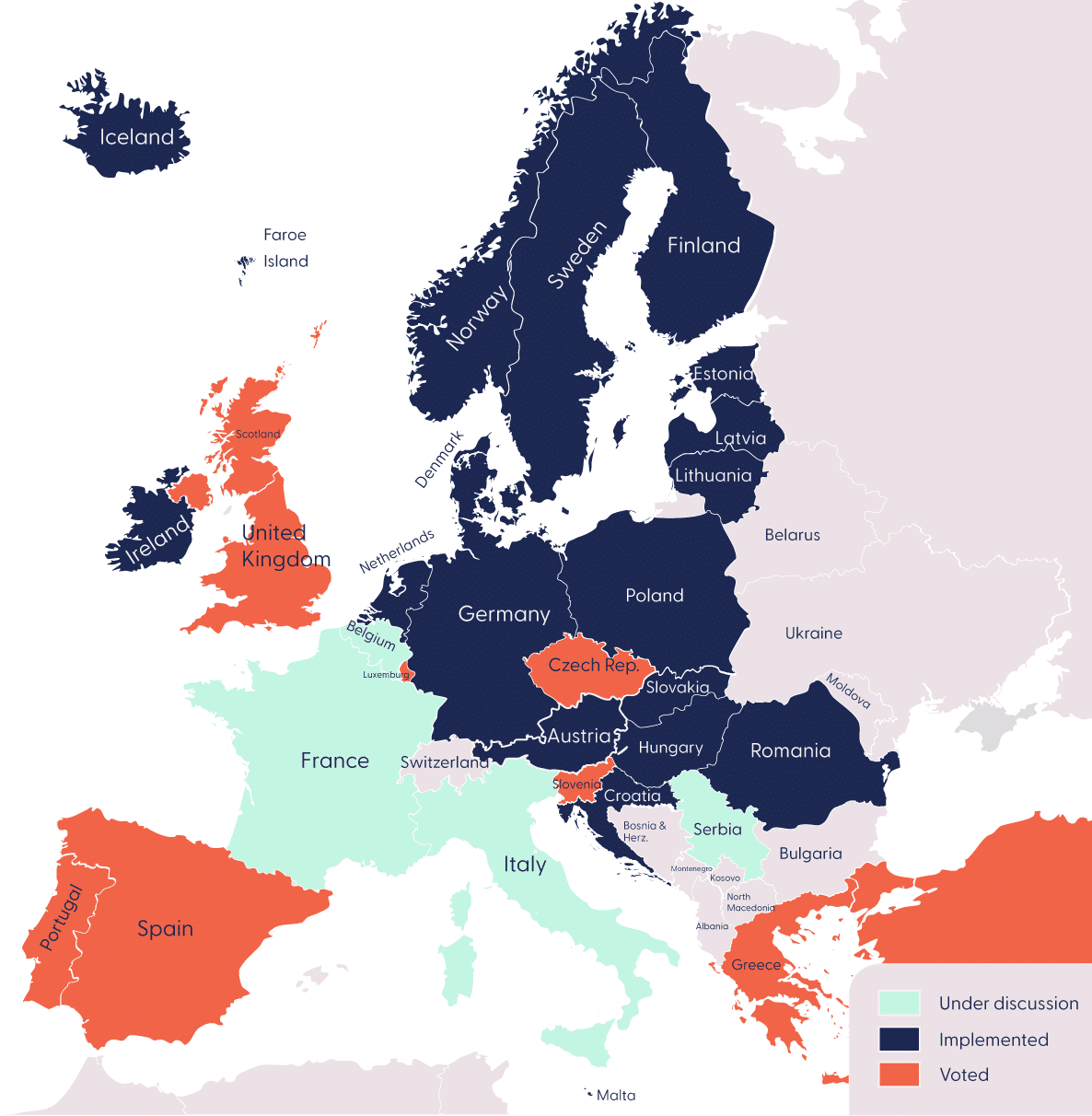
8 countries that have deposits for a long time
The first deposit system was introduced in Dublin more than 200 years ago. So it is far from new. Many European countries have been charging deposits on single-use plastic bottles and cans for decades. Those countries have long achieved high collection targets and have clean streets.

[DO NOT DELETE] Invisible item so all accordeon is closed
Croatia
In Croatia, since 2006, there has been a deposit of 0.5 Croatian Kuna on non-refillable containers with a minimum volume of 200 ml. Retailers larger than 200 m² are obliged to take back containers. The government administers the scheme. There is a collection target of 95%. Since 2015, deposits have returned 90% of all non-refillable packaging on the Croatian market.
Denmark
Denmark introduced the first national deposit system in 1922. In 1991 and 1993 it expanded to include plastic bottles. Dansk Retursystem , a private non-profit organization manages the system. In 2019, the system achieved a total efficiency of 92%.
Estonia
Estonia has had a universal deposit and recycling system for single-use and refillable packaging since 2005. The deposit is €0.10 on most metal, plastic and glass beverage containers. The system is managed by Eesti Pandipakend , a producer responsibility organization representing the Estonian Association of Brewers, the Association of Producers of Soft Drinks, the Association of Importers of Soft Drinks and Beer and the Estonian Association of Retailers.
Finland
Finland first introduced the deposit system in 1952 on glass bottles – at the same time as the Summer Olympics that brought Coca-Cola to the country – in glass bottles. In the 1980s, some reusable and sustainable plastic bottles were included in the deposit system. Deposits were introduced on aluminum cans in 1996, on PET bottles in 2008 and on recycled glass bottles in 2012. Suomen palautuspakkaus Oy (abbreviated Palpa), a private consortium of beverage importers and manufacturers, runs the system.
Germany
In Germany, the deposit system has been in place for seventeen years , since 2003. There is a deposit on plastic, cans and glass beverage containers. The standard deposit amount has been 0.25 euros since 2016. The deposit is higher for disposable packaging than for reusable packaging, such as glass bottles. 97 to 99% of single-use bottles are returned. The recycling rate of tin is approximately 99% . In January 2021, the German government of Angela Merkel (CDU – SPD – CSU) approved a new Packaging Law , Verpackungsgesetz . The deposit on packaging of juices and alcoholic drinks has been in force since January 2022 and will be extended to dairy products in 2024 . Germany has had a deposit ( Pfand ) on plastic bottles and cans for a long time , since 2003. But juices, wine and milk were excluded. The new Packaging Act therefore only looks at the packaging, and not at what drinks it contains.
Iceland
Iceland has had a national-scale deposit system for plastic, aluminum and glass beverage containers since 1989 .
Norway
Norway adopted a deposit law in 1999. In 2018, rates increased to NOK 2 for small bottles and cans and NOK 3 for large bottles. Infinitum AS (formerly Norsk Resirk) is responsible for implementing the national recycling program for non-refillable plastic bottles and beverage cans. The non-profit organization was founded in 1999. It is owned by companies and organizations in the beverage and food industries.
The Norwegian system works in such a way that the environmental burden decreases as the return increases. This means that, for example, a 90 percent return for cans translates into a 90 percent discount on environmental taxes.
Sweden
In Sweden, aluminum cans have had a deposit system since 1984 and PET bottles since 1994. Pantamera is responsible for the deposit system for aluminum cans and PET bottles. In January 2025, Sweden’s DRS operator announced that deposit rates will be increasing from 1 SEK to 2 SEK on aluminium cans and small PET bottles, and from 2 to 3 SEK on large PET bottles. The first products will be on store shelves in early September 2025.
System introduced in 10 countries since 2016
The tightening of regulations in Europe, especially on plastic packaging (Single-Use Plastic Directive, revision of the Packaging and Packaging Waste Regulation), has led several European countries to also introduce deposits since 2016.
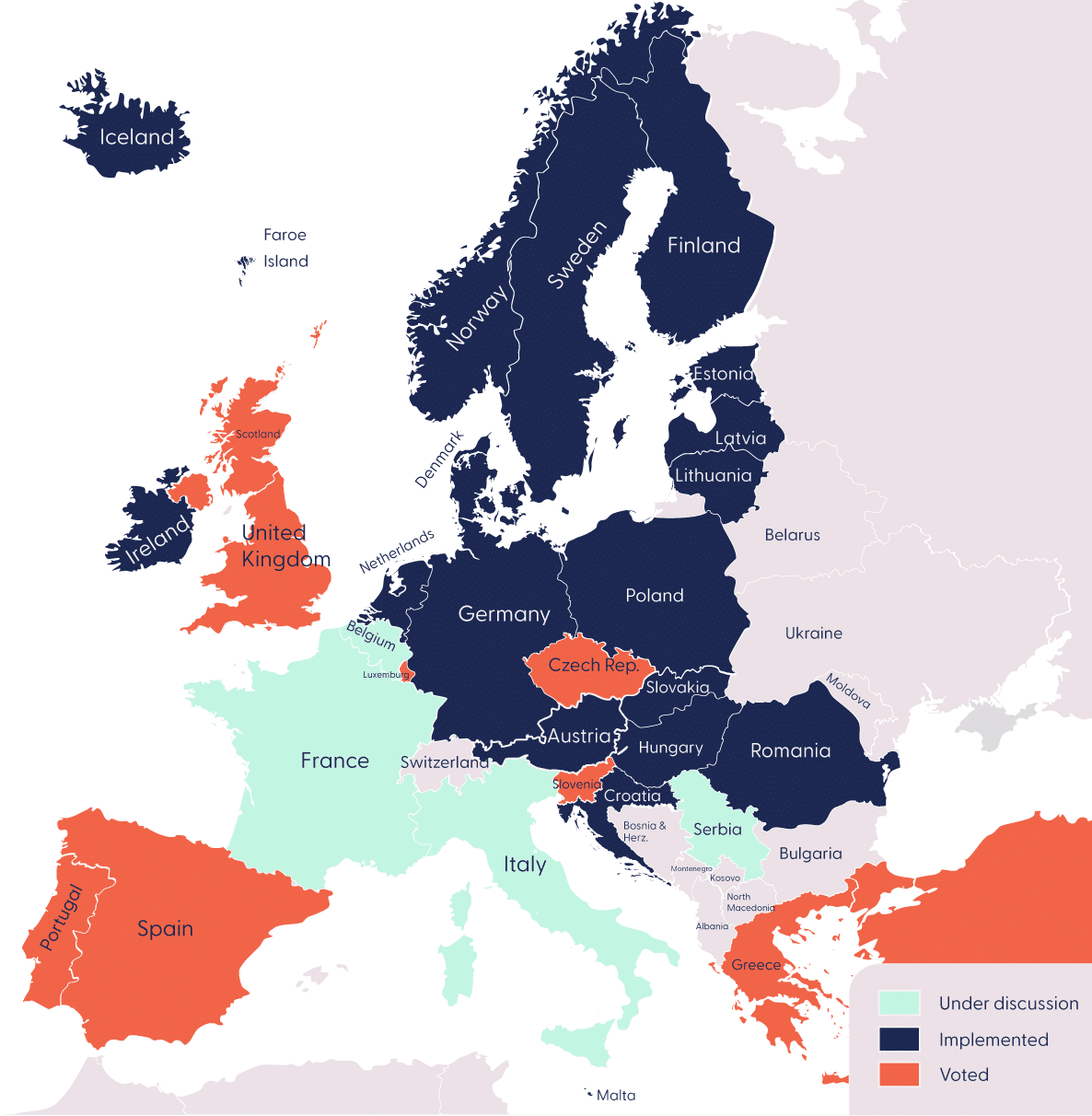
[DO NOT DELETE] Invisible item so all accordeon is closed
Austria
Environment Minister Leonore Gewessler launched the Austrian government’s 3-point plan to stop plastic waste on September 7, 2020. The law on single-use packaging was adopted in October 2021. It provides deposits on disposable beverage packaging, PET bottles and cans.
On September 8, 2022, Léonore Gewessler announced that the deposit will be operational in 2025. The deposit amount will be €0.25 and will apply to all packaging between 0.1 and 3 liters. There is only one exception, milk, because of the risk of spoilage. Austrians will be able to return their empty drinks containers at all points of sale and receive a deposit back. This is also possible in train stations and container parks. “The goal is to design the most effective deposit system in all of Europe,” said climate minister Gewessler.
The Austrian government of conservatives and greens also wants to demand that from 2023, i.e. next year, 25% of drinks sold are sold in reusable drinks packaging. That figure should rise to 40% in 2025 and 55% in 2030. A Research Affairs poll in August 2020 shows that 81% of Austrians are in favor of a deposit on PET bottles and 76% are in favor of a deposit on cans.
Hungary
Hungary has introduced the deposit system since January 1, 2024. The system is managed by the system administrator MOHU (MOL Hulladékgazdálkodási Zrt.). The system includes single-use drink packaging in metal, glass and plastic with a capacity of 0.1 liter to 3 liters (excluding dairy products). Consumers pay a 50 Hungarian forint (approximately €0.13) deposit when purchasing a drink in scope and all points of sale with an area of more than 400 m2 must accept empty packaging. Many other points of sale also participate voluntarily and manually in the take-back system.
Ireland
The Irish government of Conservatives, Christian Democrats, Liberals and Greens announced in September 2020 that deposits will be introduced in the third quarter of 2022. Despite a delay of more than a year in introducing the system, plastic cans and bottles can now also be returned in stores from February 1, 2024. The system is managed by Re-turn.
Latvia
In Latvia, parliament passed the packaging law in October 2019, which plans the introduction of a deposit system. It started on February 1, 2022 . The deposit system accepts glass, plastic (PET) and metal (can) containers filled with soft drinks, all types of beer and other alcoholic drinks (up to 6%). The system is managed by Deposīta Punkts.
Lithuania
Lithuania voted its deposit legislation for single-use cans and bottles in February 2016. The deposit is the same for all packaging and amounts to € 0.10 per bottle or can. The deposit system is managed by Užstato Sistemos Administratorius. The plastic bottle return rate for plastic bottles has been increasing dramatically : it was 34% before the deposit scheme, 74.3% at the end of 2016, 91.9% at the end of 2017 and 93% in 2018. Deposits were introduced during the Butkevičius government, consisting of Socialists, Liberals, Conservatives and Christian Democrats.
Malta
In Malta, the government signed the deposit regulations for beverage containers in 2020. The start of the system is expected in 2022, the date will be announced later in the year. The system came into effect on November 14, 2022. The deposit is 0.10 euros for all aluminum and steel cans and glass and PET bottles with a capacity of 0.1 to 3 liters. Dairy products, fruit juices, wine and alcohol with an alcoholic strength by volume of more than 5.0% are currently exempt from this system.
The Netherlands
The Dutch Rutte III government decided in April 2020 that there will be a deposit on all small plastic bottles from July 1, 2021. The government of liberal parties VVD and D66 and Christian Democrats of CDA and CU expanded the existing deposit system on large plastic bottles to all plastic bottles. Beverage producers Coca-Cola Netherlands and Spadel Netherlands have shown their support for the expansion of the system. Since the deposit guarantees the quality of the plastic and sufficient recycling of PET, Coca-Cola has chosen the Netherlands as the second country where it will sell 100% recycled plastic bottles.
The instructions quickly gave results in terms of cleanliness. Only six months after the introduction of the deposit on small bottles, the Ministry of Rijkswaterstaat counted a 41 percent reduction in small bottles in nature between December 2021 and 2022.
Ultimately, after a unilateral announcement by the industry, the expansion took place on April 1, 2023. The impact on litter is already proven, in spite of some challenges faced.
Poland
On June 2, 2022, the Polish government decided that a deposit will be charged on cans and bottles starting in 2023. According to the Minister of Climate and Environment, this is absolutely necessary in the fight against litter. Since October 1, 2025, the deposit system has applied to disposable and reusable glass bottles up to 1.5 liters, PET bottles up to 3 liters, and aluminum cans up to 1 liter. The deposit is 0.5 or 1 zł (0.12 or 0.23 €). Shops with a surface area of more than 200 m² are obliged to take back deposit bottles. Smaller outlets can participate in the system on a voluntary basis.
A transition period is planned, and the system should be fully operational in the course of 2026.
The system is expected to save 200 million tons of CO2 and generate €400 million for the Polish economy over the next decade.
Romania
In October 2021, the Romanian government decided to introduce a deposit system. Since November 30, 2023, packaging can be returned to any point of sale that sells drinks. The deposit is of be 0.50 ron (0.20 euro) and all beverage packaging made of glass, plastic and metal with a volume between 0.1 and 3 liters are included. The system is managed by the RetuRO system operator.
Slovakia
In Slovakia, the parliament passed a law in September 2019 that introduces a deposit scheme for PET bottles and cans from 2022. All stores with an area of more than 300 square meters need to take back empty packagings. The deposit is €0.15. The operator Slovensko zálohuje manages the system. It immediately showed impressive results. In just one year, the return rate for returnable packaging has risen from 60% to 70%.
Planned introduction in 7 countries
Besides actually introducing the system, several countries have also taken important steps in the right direction by voting on its implementation. Those countries then need to prepare for it’s actual introduction: appointment of a system operator, design of the system.
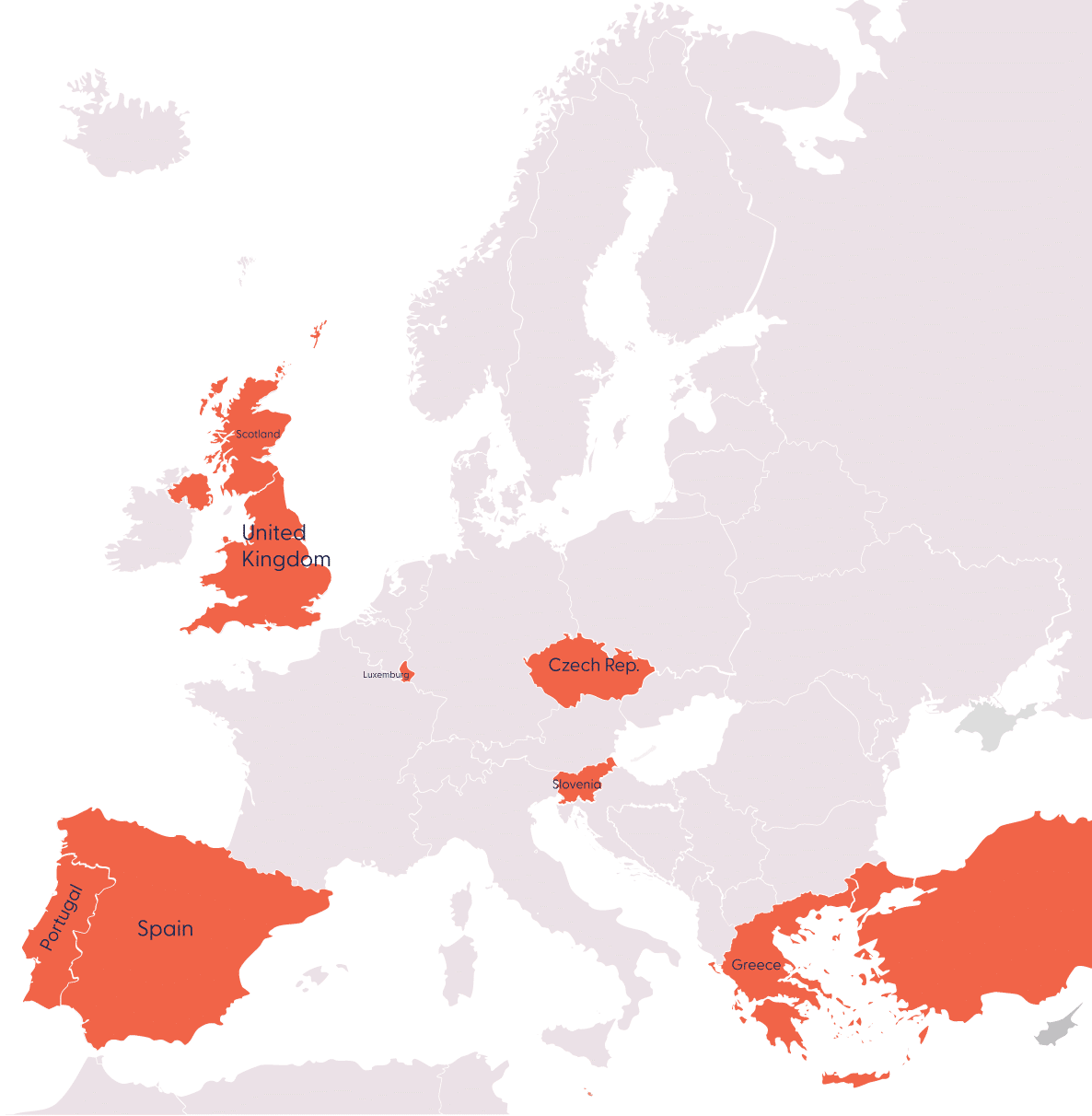
[DO NOT DELETE] Invisible item so all accordeon is closed
Czech Republic
Czech republic is planning the introduction of a deposit for plastic bottles and cans. The system will cover an estimated 1.8 billion PET bottles and 0.8 billion cans yearly, 3 out of 4 currently not being sorted. The system should be operating mid-2025. However, the system operator still must be appointed.
Greece
In May 2021, the Eunomia research group and the Association of Greek Packaging Manufacturers called on the Greek government to introduce a deposit system in the country. Greece has committed to introducing a national deposit system from July, 2023, as part of the new national legislation on waste, recycling and circular economy.
Luxembourg
The Luxembourg parliament approved the deposit law on May 5, 2022 . There will be one national deposit system for all beverage packaging placed on the Luxembourg market. The deposit amount varies from 10 cents to 1 euro, depending on the type of packaging. The amount of the deposit per type of beverage packaging, the detailed timetable for its introduction and the requirements for the organization of the sector are specified in a Grand Ducal Regulation.
Portugal
A pilot project for a nationwide deposit system was launched in Portugal in March 2020 with the support of the Portuguese food industry and beverage manufacturers. The government has introduced the legal decree providing for the introduction of a deposit system by 2022. However, no decision has yet been made on the practical aspects of this introduction. The Marine Environment Research Association has launched a petition asking the government to introduce the deposit system quickly and effectively.
Slovenia
Slovenian Environment Minister Andrej Vizjak supported environmental NGO Eko Krog’s proposal to introduce a deposit system in 2021. The association of beverage manufacturers supports the proposal because the system will ensure better separate collection of beverage bottles.
Spain
The Spanish Packaging and Packaging Waste Decree (1055/2022) stipulated that Spain would have to introduce a deposit system if it failed to reach 70% of separate collection of plastic bottles by 2023. With rates close to 41%, the Spanish government announced in November 2024 that the system would start within two years. Plastic bottles, but also cans and beverage cartons (such as TetraPak ) will be part of the system.
United Kingdom
At the level of the United Kingdom, the government of Theresa May (Conservatives) announced a deposit scheme for drinks containers in March 2018. The Blue Planet II series had brought attention to the threat of ocean pollution. In July 2019, the British government stated that it is targeting 2023 to have a fully functioning deposit system. A poll by Populus in June 2020 shows that 84% of Britons are in favor of a deposit on all drinks packaging.
In January 2023, details of the introduction of the deposit system in the United Kingdom, Wales and Northern Ireland were revealed. The systems in each region must be in place by October 1, 2025. All PET bottles and aluminum and steel cans will be included in the system (between 50 ml and 3 liters). The points of sale must take back the packaging placed on the market (take-back obligation). The system operator was appointed in May 2025.
In November 2024, Wales withdrew from discussions on the introduction of a common system throughout the UK, mainly due to differences over the inclusion of glass packaging in the system. The government is now working to its own timetable, with consultations scheduled for 2025.
The government of Scotland led by Nicola Sturgeon of the Scottish National Party announced in May 2019 the plan to introduce deposits on plastic bottles, glass bottles and cans. The Scottish Parliament voted in favor of the deposit scheme in May 2020. The system covers all drinks sold in PET plastic, metal and glass. There will be a fixed deposit of 20 pence (0.23 euros) for all formats. The introduction of the system should be aligned with the rest of the UK, following Stakeholders’ discussions scheduled in spring 2025.
Discussions in 4 countries
As time passes, the number of countries discussing deposits without having introduced them decreases. These countries are also separate from those that have introduced this measure for collecting disposable packaging. This is the case of France, Italy, Belgium and Serbia.
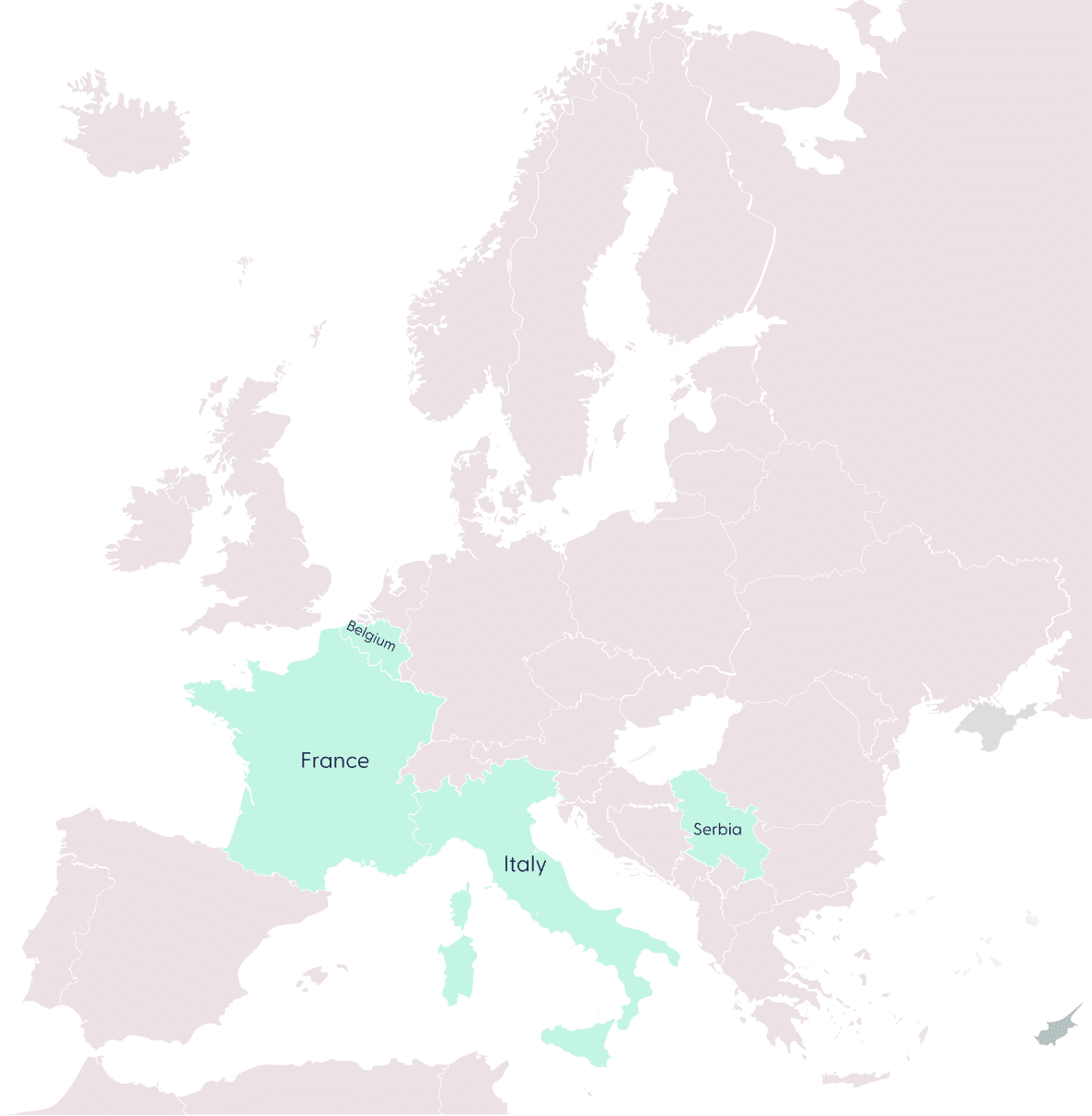
[DO NOT DELETE] Invisible item so all accordeon is closed
Belgium
In Belgium there is a deposit on some reusable glass bottles, such as for beer. The debate about the introduction of deposits on cans and plastic bottles has been going on for more than ten years. In Belgium, deposits are the responsibility of the regions of Flanders, Brussels and Wallonia. In 2018, the industry was given a last chance to tackle the growing litter with awareness and fines. However, the amount of litter is still growing.
In 2017 and 2018, hundreds of municipalities, companies and organizations joined the Deposit Alliance, which asks regional governments to quickly introduce deposits for all cans and plastic bottles. In 2019, the new governments of Flanders, Brussels and Wallonia wrote the possible introduction of deposits in their coalition agreements. In 2021, more than 100 Walloon municipalities and 200 Flemish municipalities were already part of the Deposit Alliance. Walloon Environment Minister Céline Tellier (Ecolo) launched a study into the implementation of deposits in 2022. In the summer of 2022, the municipality of Bredene conducted a successful pilot project with deposits. On September 6, 2022, the Environment Minister of Flanders, Zuhal Demir (N-VA), said that deposits are unavoidable and that the Flemish government will decide in 2022 based on the latest figures on litter.
The new accreditation 2024-2028 of the PRO responsible for household waste management (Fost Plus) provides for the introduction of a deposit system for all cans and bottles, under cover of an agreement between the three regions (article 2).
The 2024 coalition agreements of Wallonia and Flanders do not mention the introduction of a deposit in Belgium, in spite of the strong positioning of Walloon coalition partner Les Engagés and Flemish coalition partners CD&V and Vooruit. The preparatory work for the introduction of a deposit is our continuing within the Interregional Packaging Commission, in charge of the coordinated packaging and waste management for the whole of Belgium.
France
In France, Minister Brune Poirson (of the liberal party En Marche) stated on July 10, 2019 that the French government wants to introduce deposits on plastic bottles and cans. She received the support of French supermarkets and beverage manufacturers, including multinationals that are also active in Belgium and the Netherlands. Due to pressure from conservative mayors in the French Senate, the project has been postponed until 2023. The introduction of a DRS for reusable drinks has been announced in July 2023, a decree proposition is currently discussed in the Parliament. At the same time, DRS for recycling has been postponed by the previous Minister of the Environment Christophe Béchu in September 2023.
Italy
A partnership of non-governmental organizations National Association of Comuni Virtuosi, Greenpeace Italia, Oxfam, WWF Italia and Zero Waste Italy, has joined forces to support the introduction of a mandatory national deposit system for beverage packaging in Italy. The campaign, entitled “Buon Rendere – molto più di un vuoto“, is the first national initiative for a deposit system in Italy. In November 2021, they made a joint appeal to the Draghi government and to Roberto Cingolani, the Italian Minister for Ecological Transition, to accelerate the introduction of an effective deposit system in the country.
Serbia
The director of the Serbian Environmental Protection Agency (SEPA), Filip Radović, has announced that the introduction of a deposit system in Serbia to regulate the return and disposal of packaging waste could be discussed in 2019. Although the topic of deposits has been on the table for many years, no decision has been made so far.
The race towards deposits
We can therefore speak of a real race for deposits. The debate about plastic pollution is happening everywhere. The Member States of the European Union are working hard on legislation to do something about it. The pace varies from country to country, but the direction is the same.
The popularity of deposits is also increasing at the borders of the European Union. In January 2019, Turkey decided to introduce a deposit on all beverage containers within four years. With 80 million inhabitants, Turkey will be the second largest deposit country in the world after Germany.
As part of the revision of the European Packaging and Packaging Waste Regulation (PPWR), the mandatory introduction of a deposit by 2029 is being discussed, along with essential features. This obligation would apply to all countries failing to achieve a certain return rate. The final version of the decision is still awaited (info March 2024).
Related Tags

Where and why: financing of the plastic waste trade
In our previous article, we provided a wide overview of the size and importance of international plastic waste (PW) trade. Subsequently, in this piece, we will shed light on why plastic waste trade is such a profitable sector and which are the incentives to perform this business outside of legality.
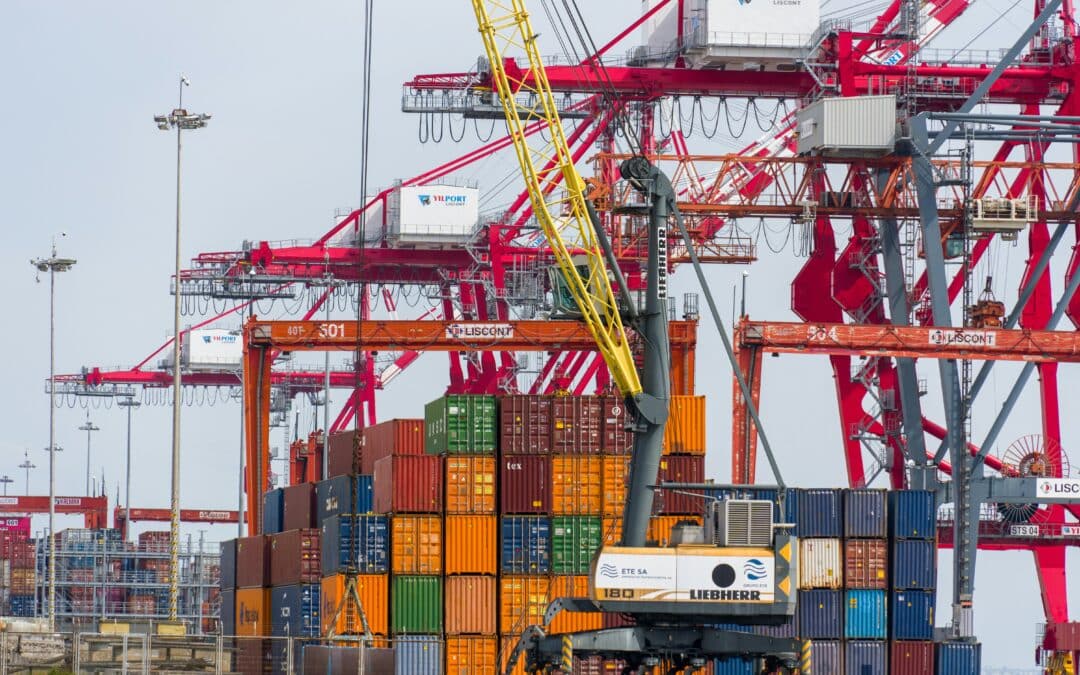
Court of Rotterdam sentences several people for illicit plastic waste trade from the Netherlands
On Friday 8th of August 2025 Dutch news outlets echoed about a sentencing on plastic waste smuggling from the Netherlands to various non-EU countries. NL Times, AD, local news outlets, and the Dutch Inspection (ILT) reported the criminal sentencing of 4 people and 3 companies for illicit plastic waste trade, with one of them being also charged with money laundering.
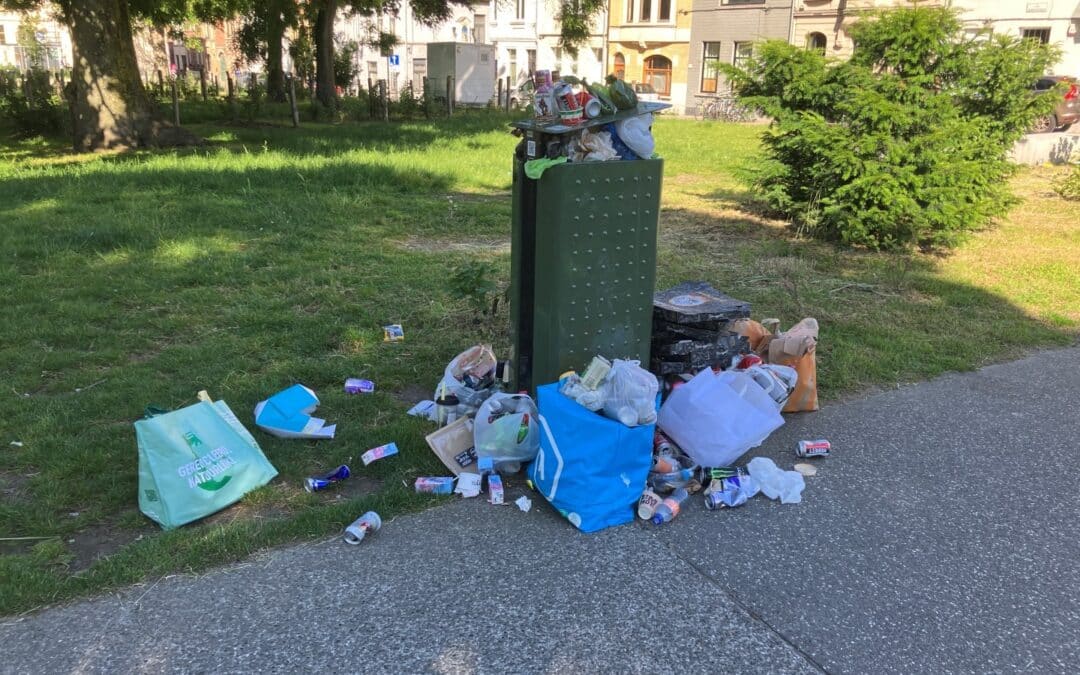
Belgian packaging industry already saved 465 million € in litter fees – at our expense
The Belgian packaging industry is outraged by the introduction of a new €102 million litter levy. But it conveniently forgets that its effective lobbying has already saved it no less than €465 million. This sum has been gained at the expense of local authorities and society. This levy is due to be approved today by the Walloon Council of Ministers. Fair Resource Foundation delves into the figures.

